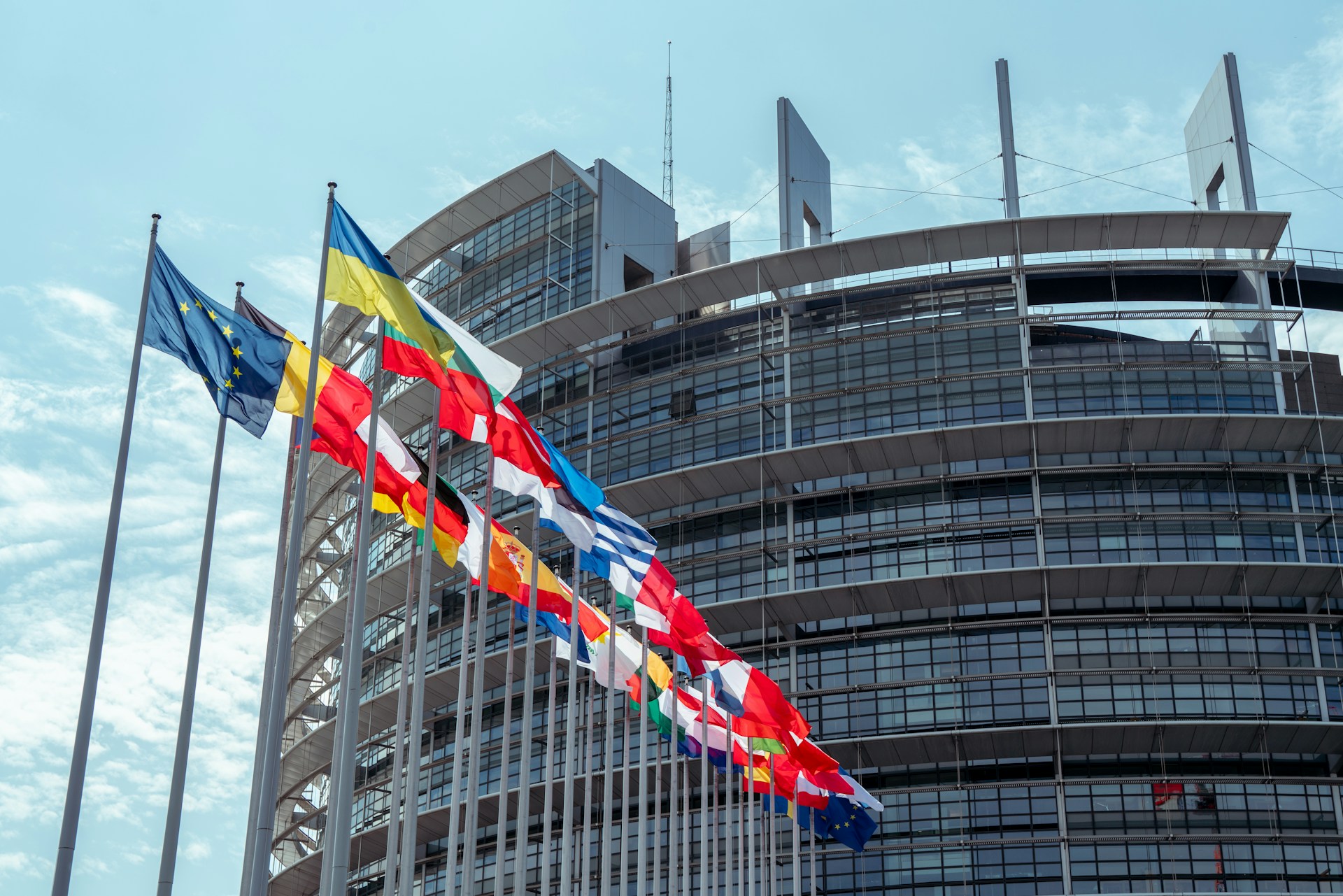

Compliance Meets Strategy
/ When the Winds Shift: Navigating Sustainability Amid EU Political and Regulatory Uncertainty
As of May 2025, the sustainability regulatory landscape, particularly in the EU, is undergoing a significant transformation. While the European Green Deal continues to drive ambitious climate, biodiversity, and circular economy targets, political and economic pressures are forcing a recalibration. Regulatory efforts like the Corporate Sustainability Reporting Directive [CSRD], the Corporate Sustainability Due Diligence Directive [CSDDD], and the EU Taxonomy remain critical pillars, but we start seeing now that their implementation is being either reshaped or postponed as a response to our evolving world.
From Over-Regulation to Simplification & Administrative Relief
Over the past few years, EU sustainability regulation expanded rapidly as a response to the social and economic pressure demanding a change for environmental and social purposes. Today, we see a shift in gears, almost inadvertently, in the European Commission, aiming for simplification and proportionality. These changes are particularly evident in the CSRD, which will be explored in more detail below.
In February 2025, the Commission proposed the ‘Simplification Omnibus’, a legislative package designed to reduce bureaucracy and facilitate the regulatory process, especially for small and medium-sized enterprises [SMEs]. The CSRD’s regulatory reach which is one of the most influential EU regulations in the last year, was scaled back to only apply to companies with more than 1,000 employees, significantly reducing the number of organizations in scope by approximately 80%. The goal behind this move is clear: preserve the global competitiveness of EU businesses and reduce administrative fatigue without abandoning the sustainability objectives of the Green Deal. Fewer qualitative disclosures, streamlined data points, and more manageable reporting obligations are now the order of the day.
However, even with these simplifications, compliance with sustainability regulations remains highly complex, especially since all firms that fall within the CSRD scope are required to conduct double materiality assessments and to manage extensive data gathering across their entire value chains.
A Closer Look at the Current CSRD Landscape
The Corporate Sustainability Reporting Directive [CSRD] remains a cornerstone of the EU’s sustainability framework and plays a big part in the plan to achieve the Green Deal’s goals:
- Objective: Enable standardized, comparable, and credible ESG reporting across Europe.
- Regulatory Reach: The reach is the area that has undergone the most substantial changes.
- Previous Reach: Applied to all large companies meeting two of three thresholds [250+ employees, €40M turnover, €20M balance sheet].
- Revised Reach [proposed Feb 2025]: Applies only to companies with more than 1,000 employees.
- Content Focus Areas: Strategy, risks, double materiality, governance, and value chain transparency.
- Implementation: Companies previously covered by the Non-Financial Reporting Directive [NFRD] began reporting under the CSRD in 2024. However, the broader roll-out to additional companies is currently under review. This introduces a period of uncertainty for these firms. While the original timelines may still apply, potential changes in scope and timing could affect when and how these companies need to prepare. Staying informed and adaptable will be key.
It is important to note that, while the CSRD introduces over 1,000 data points under the European Sustainability Reporting Standards [ESRS], not all disclosures are mandatory. All companies must perform a materiality assessment as a first step to identify relevant ESG issues to cover on their reporting, with phased implementation timelines and optional delays easing the transition.
Is The Omnibus Strategic Shift Leading to Over-Simplification?
The Simplification Omnibus coincided with the Budapest Declaration from the EU Council, emphasizing competitiveness and calling for a reduction in administrative burdens.
However, it sparked controversy. With the Simplification Omnibus in place, many companies, especially SMEs, will no longer be required to report on their sustainability actions, which could allow them to continue degenerative practices unnoticed. Critics argue that lowering ESG disclosure thresholds risks undercutting the EU’s credibility in driving climate action.
But the debate is bigger. The Omnibus proposal reflects a broader political shift within the EU:
- Rising populism and economic anxiety have led to calls for deregulation.
- Other regulations such as CSDDD [Corporate Sustainability Due Diligence Directive] is also facing delays and dilution.
- Yet, the core goals of the Green Deal are climate neutrality, biodiversity protection, and circular economy that remain the same.
Outside the EU, macroeconomic pressures like inflation, energy shocks, and high interest rates and also a ‘politicization’ of ESG, e.g., anti ESG backlash in the U.S. and others, are further complicating the path forward.
Companies need to act in these opposing currents and tectonic shifts in all aspects: geopolitically, economically, ecologically, and socially.
Changes in regulations, like the EU’s Omnibus Simplification, reflect this reality; they evolve alongside these developments and mature under real-world pressures. While it can be difficult to focus on topics that may seem abstract, like sustainability, during times of uncertainty, it is precisely in such moments that leaders thinking about the future becomes most crucial. Developing a resilient and facts-based leadership mindset now is essential to co-create a better future and shape our economy toward a more sustainably successful path.
Recommendations for Business Leaders
- Reframe Sustainability as Core Business Strategy
Move beyond seeing sustainability as a pure compliance exercise. Turn it into a driver of resilience, innovation, risk management, and cost efficiency in the first place and make it an integral part of a company’s value creation fabric. - Focus on What Truly Matters: Prioritize Material Topics
Cut through the complexity by identifying sustainability issues that are genuinely material to your business and stakeholders. Use the double materiality lens to align ESG efforts with business performance, risk management, and long-term value creation. Tie key sustainability KPIs directly to financial metrics, growth levers, and operational goals to ensure they are embedded in strategic decision- making. - Empower Value Chain Partners for Shared Compliance
With increasing expectations under CSRD [and formerly under CSDDD], collaboration across the supply chain is critical. Avoid overwhelming smaller suppliers with data requests they cannot meet. Instead, support them with ready-to-use templates, digital tools, guidance on disclosures, and targeted capacity-building programs that help elevate overall ecosystem readiness. - Communicate Authentic, Impact-Driven Success
Go beyond slogans and highlight measurable sustainability progress. Whether it’s implementing circular business models, scaling clean energy adoption, or decarbonizing transport and logistics – share real, quantified impact stories. These narratives not only build trust but help differentiate your brand in a crowded ESG landscape. - Build Regulatory Compliance and Stay Agile
The regulatory environment will continue to evolve. Develop internal expertise, monitor policy updates closely, and prepare for flexible compliance pathways. With the help of AI, you can create regulatory foresight, avoid sales blockers, and gain a competitive edge. This is not only future, this is what bluegain is currently doing in client projects.
The world of sustainability regulation is shifting from rapid expansion to smart, pragmatic application. Companies that embrace sustainability not as a burden but as a catalyst for innovation and resilience will not only survive this transition – they will lead the way.
/ About the Author
- Mara Garcia de Juan is Sustainability Transformation Associate at bluegain, helping companies transition to sustainable practices and promote long-term environmental and social responsibility. With experience in various sectors including fashion sustainability, sustainable logistics and the organic food industry, she specializes in regenerative business models, living systems thinking and natural resource management. She studied at the Alanus University of Arts and Social Sciences and earned several certificates, including Blockchain at the Frankfurt School of Finance & Management.
/ DOWNLOAD WHITEPAPER
Empowering you with knowledge is our priority. Explore our collection of well-thought-out whitepapers available for download. Should you have any questions or wish to explore further, our team is here to assist you.
download


 back to Article
back to Article